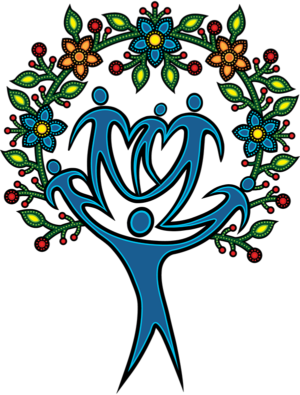Mentors
Mentor training is an important component of successful mentoring programs12. It serves to prepare students for the role of a mentor by developing needed skills and knowledge as well as an understanding of the roles, responsibilities and characteristics of a successful teen mentor4. Training also helps potential mentors to determine if the program and commitment is right for them. Teen mentors who receive at least 2 hours of training are more likely to experience higher-quality and closer relationships with their mentees and have longer lasting matches14. Students need to participate in training prior to being approved and partnered with a mentee. Initial and ongoing training opportunities will prepare and empower mentors for their role.
Mentor Training Opportunities:
Click each item for more information
(*Note: You may download an offline version of the Orientation for Mentor course here – 33MB file from downloaded from Googl Drive)
The Alberta Mentoring Partnership Online Training Module for mentors is a free resource that provides students with an overview of some of the core concepts of mentoring and what it means to be a mentor. Students complete five short modules before taking a quiz to demonstrate their learning:
- Course Introduction and Learning Objectives
- History of Mentoring
- How to be a Mentor
- The Mentoring Relationship – Dynamics and Guidelines
- Mentoring Programs
Step 4: Tool A – AMP Online Mentor Training – Getting Started document can be shared with students to guide them through the process of using the Alberta Mentoring Partnership’s online mentor training. Students are provided with a certificate upon completion. Students should complete the online training module prior to attending the In Person Training as an introduction to mentoring.
Program staff can e-mail mentor.support@albertamentors.ca to set up an admin account to keep track of the students’ participation and grades.
In person training is also an important part of screening and preparing potential teen mentors. It allows staff to observe how students communicate and interact, their understanding of content, and whether they have the qualities that make them suitable for a teen mentoring program.A Teen Mentor Training PowerPoint is available, and can be adapted to suit your program. The PowerPoint provides information on a variety of topics relevant to Teen Mentoring and provides opportunities for student interaction through discussions and activities to keep students engaged.The goals of the in person training are to help mentors:
- Develop the skills and characteristics required to build caring mentoring relationships
- Understand the challenges and barriers their mentees face and how to be sensitive to those issues and their impact on the mentees’ lives
- Gain confidence in their role as a mentor and feel inspired to commit their time to the program
You can also access the Mentor Training Event Toolkit for further support in planning, organizing and facilitating the training as a larger scale event.
Mentees
Mentee Training Opportunities:
Click each item for more information
The Alberta Mentoring Partnership Online Training Module for mentees is a free resource that provides students with an overview of some of the core concepts of being a mentee. Concepts covered include:
- What is a mentor? What is a mentee?
- Getting to know your mentor
- Let’s be safe and have good boundaries
- My strengths
- All about me
Step 4: Tool B – AMP Mentee Training Handbook provides more information on how to set up and use the online training module. This resource is appropriate for mentees ages 12 and under.
Mentees will benefit from opportunities to get to know each other and begin developing a sense of community with other participants9. It is also important that they form relationships with program staff so that the match is seen within a positive, supported context9.
Topics that may be included in mentee training include:
Program expectations, rules, guidelines and commitment
Mentee roles and responsibilities
Mentor roles and responsibilities – what a mentor is and what a mentor is not
Benefits of being a mentee
Basic communication skills
Basic problem-solving and conflict resolution skills
How to best utilize their mentors for support
Program support and who to talk to if something feels wrong or uncomfortable
Confidentiality and its limitations
Child safety
